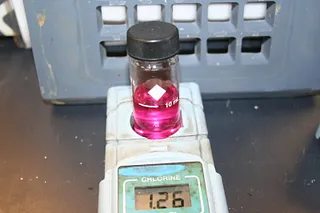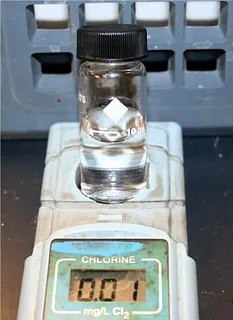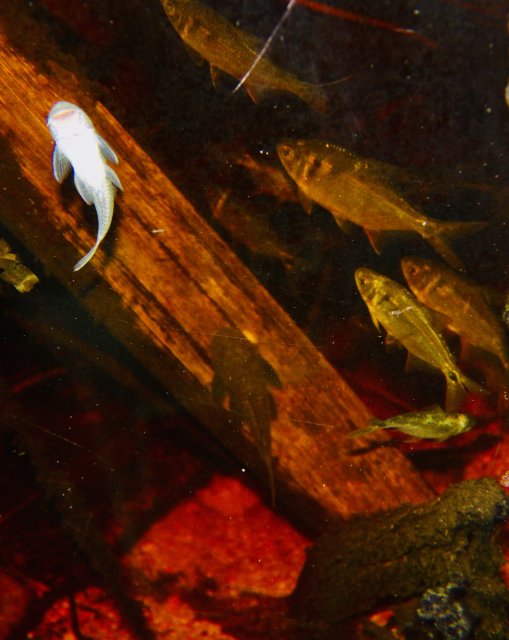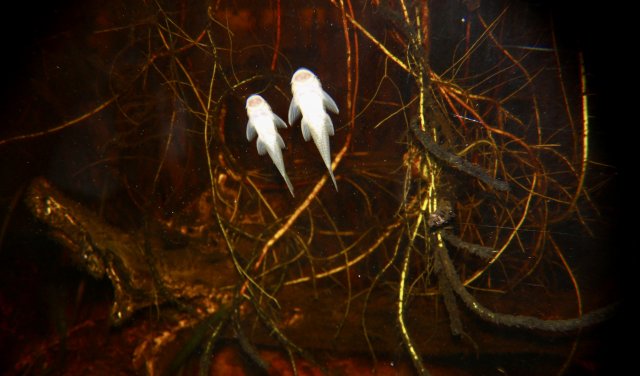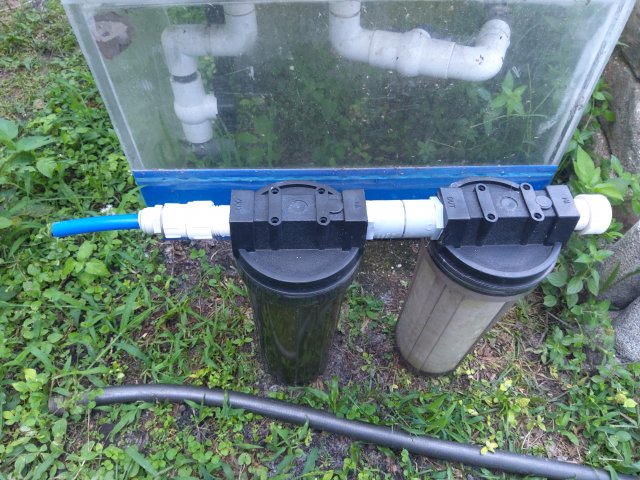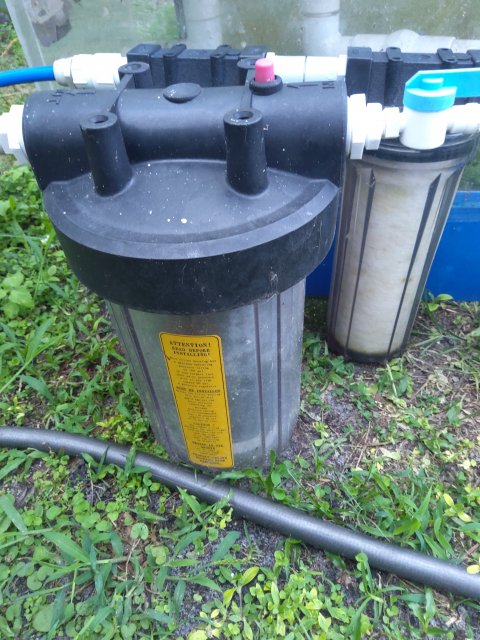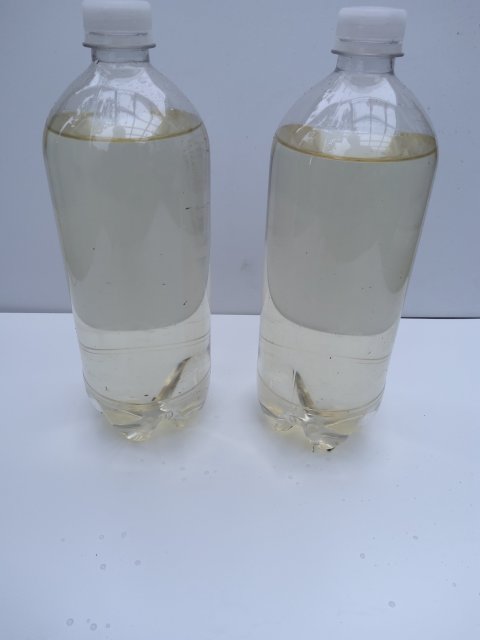My city water is loaded with chloramines, and is pretty much unusable. I have been using lake water for my aquariums but it has far more tannin than I care for. Since last years hurricanes it has gotten worse. The tank constantly looks dirty and amateurish. (I realize that having goldfish doesn't help.)
I am looking for ideas or ways to treat the water prior to adding it to my tanks. I would like to set up a water treatment system that is as automated as possible.
So far, the only thing that has worked for removing tannins is chlorine bleach. But I would prefer to avoid it if possible. I have noticed that concrete blocks in the lake have absorbed a concentration of tannins, so this has been my focus so far.
My first experiment was adding water to a bucket that had been used for mixing concrete (with a layer of cement remaining). After sitting overnight, the pH had risen to 8.4 but there was no improvement in the clarity. Three days later, still no improvement.
The second experiment was two bottles of lake water. One was a control and the other had the addition of baking soda in 1/4 teaspoon increments until a change occurred. The change never occurred. I added six doses and figured it just needed some time. After letting them sit overnight, there was zero change and no sign of any precipitation.
The third experiment is in progress, but I am having reservations to the outcome. I added two reactors to the sump. One has crushed coral and the other is just filter floss to monitor for any precipitation. This experiment is on hold for now. I need to monitor for ammonium/ammonia, but I have to wait for a new test kit. The lake water's pH is 7.0 but the aquarium had dropped to 6.0. The effluent of the reactors is 7.6, so it is showing some potential. At the very least, it can prove useful in maintaining the pH if there isn't a problem with ammonium or ammonia.
As stated before, I had success with bleach and it sent me down the road of trying ozone. My goal at the time was just to sanitize the water and clarity should have been a fringe benefit. The smell of the ozone was unmistakable while in use, but it did nothing for the clarity unfortunately. I don't know why.
Any ideas or information will be greatly appreciated
I am looking for ideas or ways to treat the water prior to adding it to my tanks. I would like to set up a water treatment system that is as automated as possible.
So far, the only thing that has worked for removing tannins is chlorine bleach. But I would prefer to avoid it if possible. I have noticed that concrete blocks in the lake have absorbed a concentration of tannins, so this has been my focus so far.
My first experiment was adding water to a bucket that had been used for mixing concrete (with a layer of cement remaining). After sitting overnight, the pH had risen to 8.4 but there was no improvement in the clarity. Three days later, still no improvement.
The second experiment was two bottles of lake water. One was a control and the other had the addition of baking soda in 1/4 teaspoon increments until a change occurred. The change never occurred. I added six doses and figured it just needed some time. After letting them sit overnight, there was zero change and no sign of any precipitation.
The third experiment is in progress, but I am having reservations to the outcome. I added two reactors to the sump. One has crushed coral and the other is just filter floss to monitor for any precipitation. This experiment is on hold for now. I need to monitor for ammonium/ammonia, but I have to wait for a new test kit. The lake water's pH is 7.0 but the aquarium had dropped to 6.0. The effluent of the reactors is 7.6, so it is showing some potential. At the very least, it can prove useful in maintaining the pH if there isn't a problem with ammonium or ammonia.
As stated before, I had success with bleach and it sent me down the road of trying ozone. My goal at the time was just to sanitize the water and clarity should have been a fringe benefit. The smell of the ozone was unmistakable while in use, but it did nothing for the clarity unfortunately. I don't know why.
Any ideas or information will be greatly appreciated






